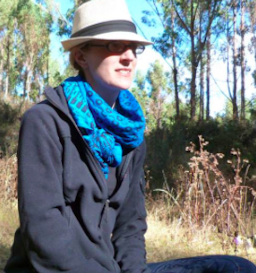How teen girls in Cameroon are changing the conversation about rape in their country
May 28, 2019
Story
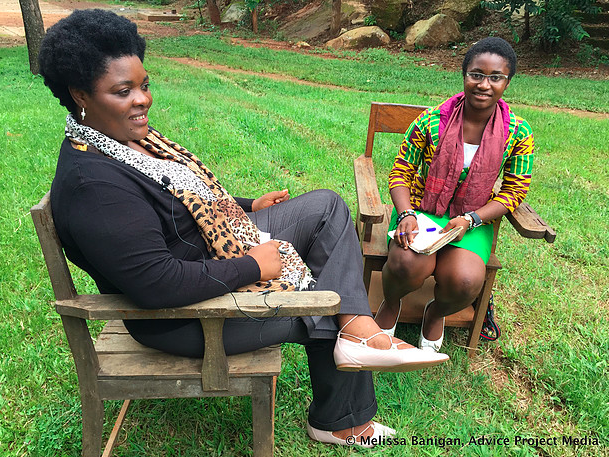
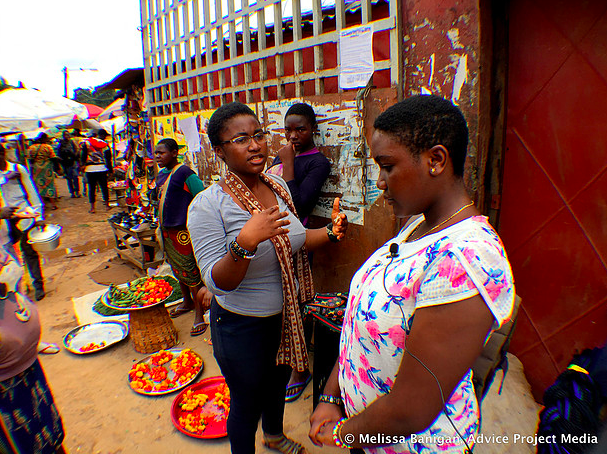
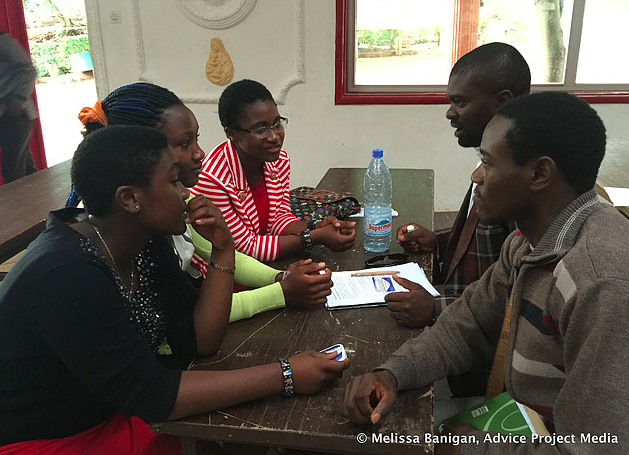
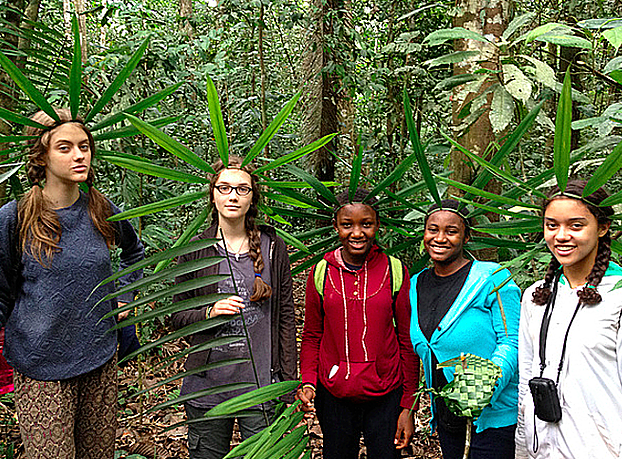
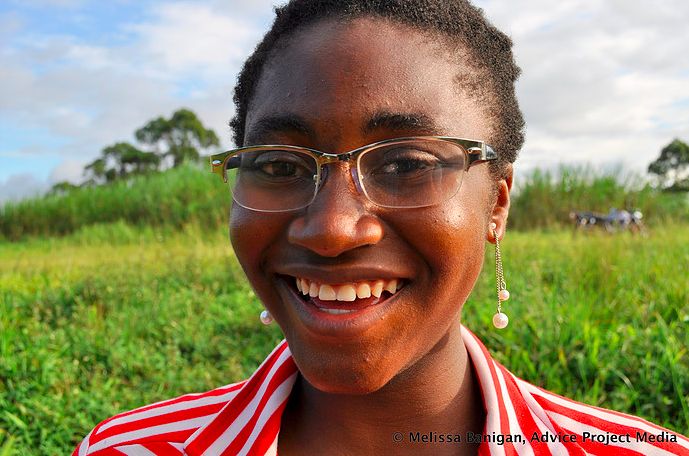
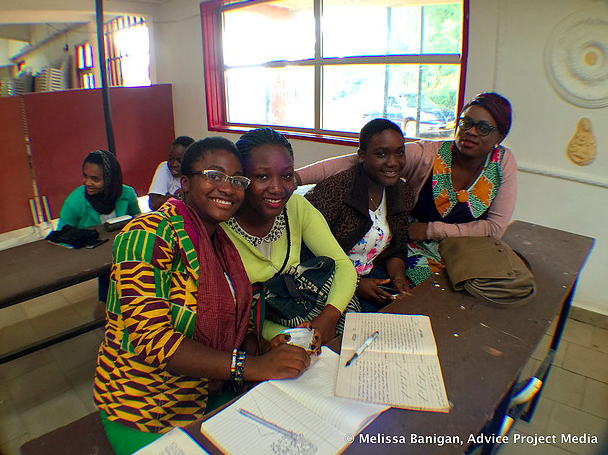
Fifteen-year-old Shneider Remi Adams wakes at five o'clock every morningto prepare the morning meal for her father and three brothers. By six o'clock she helpsher two baby brothers wash, dress, and prepare for the day. As the only daughter still living under her father's roof in Bamenda, Cameroon, and withher mother a continent away to finish a degree in nursing, Shneider is forced to not only beresponsible for nearly all of the domestic duties for her family, but she also serves, like it or not,as a de facto mother for her brothers and wife for her father.
In Cameroon, girls are expected to take care of the lion's share of cooking, cleaning, and childcare. Boys, freed from theseresponsibilities, are given the gift of time to play sports, devote themselves to their studies, and whittle away the weekend hours playing video games and watching T.V. Being relegated different household responsibilities means that girls suffer. While the attrition rate of boys in primary school is 15 percent, the rate for girls is 19 percent. By secondary school, the disparity widens: a whopping33 percent of girls are out of school compared to 22 percent of their brothers and male peers.
Education, or the lack thereof, is linked to the prevalence of child marriage. In Cameroon, 45 percent of girls who don't finish primary school are married by the age of 18. That number decreases to 13 percent for girls who complete secondary school. Even when girls do complete secondary school, they often underperform in comparison to boys due to the their increased domestic responsibilities.
It's easy to imagine how manygirls in Cameroon would simply give up. Yet despite the gender-based inequities within her family, Shneider isfortunate in that her father not only pays for her school fees so that she can continue her education, but her entire family believes that girls should be educated. Although she wakes early to take care of her family and also cooks dinner and cleans every evening, her father allows her time at night to devote to homework. Shneider's dedication and attention to her academic success, however, comes from no one but herself. In a country where boys often outperform the girls, Shneider has been at the top of her class since the beginning of her academic career, and earlier this year she received the highest marks for her entire class on her General Certificate of Education at the Ordinary Level.
Shneider's achievementswould be extraordinary under any circumstances, but in addition to the weight of her academic and domestic duties, she also shoulders responsibilities asa journalist who writes articles and creates documentary films about gender and environmental issues, and she has devoted herself to the uphill battle against gender-based violence in Cameroon.
For the last three years, Shneider has attended a weekly media and writing class offered through my not-for-profit organization, Advice Project Media. Every Saturday morning, rain or shine, she wakes at five o'clock just as she does on school days to take care of her family. Instead of using her one day off school or church to try to relax or catch up on homework,she grabs her reporter's notebook, reading materials, and pens and pencils and treks across the red mud roads of her community to make it in time for her media and writing class. There, she joins other like-minded teens girlsfor a full day of training, writing, and story-creation,and then, exhausted but exhilarated, she heads home in the evening to prepare yet another meal for her family.
What makes Shneider's story so remarkable is that there was no promise of reward for her work with Advice Project Media. She chose to join the media and writing class simply because she wanted to learn how to make the world a better place through storytelling.Herdedication, however, towards telling some of the most pressing stories about gender and environmental issues in her country, has paid off.
In early 2015, Shneiderpublished her first article about the victim-blaming of teen rape survivors in Cameroon. Later that year, she was invited alongside another teen Advice Project journalist, Gaelle Mambo, to attend a global leadership and empowerment summit in the Peruvian rainforest. Upon her return to Cameroon, she then participated in a three-week-long Advice Project Media video-making lab in order to create a documentary about how gender-based violence affects teen girls in her community.
The documentary, called Hidden Truths: Exposing Cultural Practices That Hurt Teen Girls in Cameroon, was premiered this past summer at the Millennial Empowerment Conference in Bamenda, Cameroon. After the premiere, Shneider and some of her peers from Advice Project Media sat on a panel to discuss the issues reported in the video. They also challenged media representatives sitting in the audience to offer them paid opportunities to work on new articles and documentaries about gender and environmental issues. Three representatives expressed a deep interest in collaborating on future projects, and the teens have committed time and energy to partnering with two organizations already combatting gender-based violence in Cameroon(Gender Danger and the Marie-claire N. Kuja Foundation). More importantly, dozens of social change makers from over multiple countriestold the girls that their documentary had forever shifted their understanding of rape as it pertained to teen girls. Before the documentary was shown, the responsibility for preventing rape in Cameroon had been placed solely on the shoulders of teen girls.In the documentary, Shneider and the other teensintroduced concepts such as victim-blaming and rape culture, which shifted the onus of responsibility from teen survivors of rape to the perpetrators of the rape.
Teens are a marginalized and misrepresented demographic in all countries and across all cultures, yet inCameroon, teens and adults alike now look to Shneider and her friends as leaders and social change advocates. Shneider has demonstratedthat thereis no minimum age requirement for becoming a visionary. It's important to mentor and support the work of dedicated teen girls, butmoreimportantly, Shenider's story shows us all that the world becomes a better place whenadults stepback on occasion to learn from younger generations.
This morning Shneider most likely woke in the dark hours before dawn to take care of her family. She then walked outside of her door into the foggy glow of morning to help make the world a better place for people of all genders. She's currently working alongside other Advice Project Media teen journalists on their second documentary film about gender and environmental issues, and together, they are writing a number of important articles from their unique teen vantage points. The girls bravely head into unknown territory on a daily basis, and their work emboldens others to assume the mantle of change.
Can you imagine what else Shneider and other teen journalistsmight be able to accomplishif we simply were to insistthat domestic responsibilities beshared equally among family members regardless of their gender? I strongly believe that amore peaceful, equitable world for people of all genders is within our reach, but I know that we willonly manifest this glorious future if we fight for it. Will you stand alongside me to insist that we offer the gift of timeto teen girls so that they can more easily create and share their stories? Will you allow Shneider the freedom to help us all?
https://www.youtube.com/watch?v=X4ZyNwnFAt0
